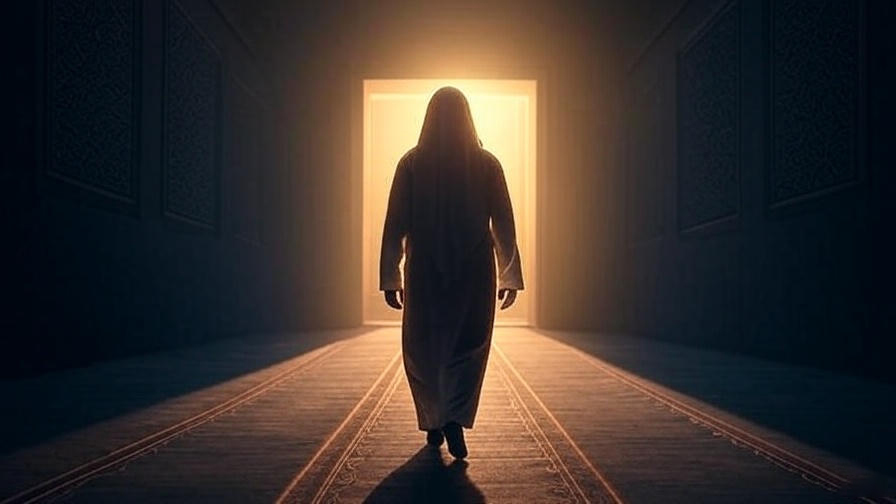In the spiritual journey of life, every human being is prone to making mistakes and committing sins. This inherent fallibility highlights our constant and universal need for Allah’s boundless mercy and Maghfirah (forgiveness). While repentance (Tawbah) and seeking forgiveness (Istighfar) are direct and essential means, the blessed act of reciting Darood Sharif (sending blessings upon Prophet Muhammad ﷺ) emerges as a powerful, yet often understated, pathway to expiate sins and purify the soul.
This article will delve into the profound connection between Darood Sharif and the forgiveness of sins. We will explore the direct textual evidence from Hadith, the spiritual mechanisms through which it cleanses our spiritual ledger, and how consistent recitation can serve as a potent tool for seeking divine pardon, leading to a state of inner purity and closeness to Allah Almighty.
Understanding Maghfirah (Forgiveness) in Islam
Maghfirah (مغفرة) is a central concept in Islam, referring to Allah’s divine forgiveness, pardon, and covering of sins. Allah is Al-Ghaffar (The Ever-Forgiving) and Al-Ghafur (The Forgiving). Muslims are encouraged to constantly seek forgiveness, as it cleanses the heart, removes spiritual stains, and opens the doors to Allah’s mercy. Forgiveness is crucial for both worldly peace and success in the afterlife.
Different acts contribute to seeking Maghfirah, including sincere repentance (Tawbah), seeking forgiveness explicitly (Istighfar by saying “Astaghfirullah”), performing good deeds that erase bad ones, and indeed, sending blessings upon the Prophet Muhammad ﷺ.
Direct Evidences: How Darood Sharif Leads to Forgiveness
The most compelling evidence for Darood Sharif’s role in the forgiveness of sins comes directly from the teachings of Prophet Muhammad ﷺ. A profound Hadith narrates:
Ubayy ibn Ka’b (رضي الله عنه) said: “I said: ‘O Messenger of Allah, I send blessings upon you a great deal. How much of my supplication should I devote to you?’ He said: ‘Whatever you wish.’ I said: ‘A quarter?’ He said: ‘Whatever you wish, and if you increase it, it will be better for you.’ I said: ‘Half?’ He said: ‘Whatever you wish, and if you increase it, it will be better for you.’ I said: ‘Two thirds?’ He said: ‘Whatever you wish, and if you increase it, it will be better for you.’ I said: ‘Should I devote all of my supplications to you?’ He said: ‘Then your worries will be removed, and your sins will be forgiven.’” (Sunan At-Tirmidhi)
This Hadith unequivocally highlights the immense power of dedicating one’s prayers and remembrance to Darood Sharif, promising complete removal of worries and, crucially, the forgiveness of sins. This is further reinforced by other narrations:
- The Prophet ﷺ said: “Whoever sends blessings upon me once, Allah sends blessings upon him tenfold, removes ten sins from him, and raises him ten degrees.” (Sunan An-Nasa’i). This direct mention of “removing ten sins” for each Darood Sharif explicitly links it to expiation of sins. (Explore the comprehensive benefits of Darood Sharif).
- When Allah sends His blessings upon us, it encompasses His mercy, forgiveness, and immense grace, all of which contribute to wiping away our transgressions.
The Mechanism of Forgiveness through Darood Sharif
Beyond direct divine promises, Darood Sharif contributes to forgiveness through several spiritual mechanisms:
- Purification of the Heart (Tazkiyah-e-Nafs): Consistent recitation cleanses the heart from spiritual diseases like heedlessness, arrogance, and envy. A purified heart is less prone to sin, and past sins are gradually cleansed. (Understand Darood Sharif’s role in spiritual purification).
- Light (Noor) in the Heart: The blessings and divine light attracted by Darood Sharif illuminate the heart, dispelling the darkness caused by sins and spiritual negligence.
- Connection to Prophet ﷺ: Fostering a deep love and connection with Prophet Muhammad ﷺ through Darood Sharif naturally inspires a greater desire to follow his perfect Sunnah. Adhering to the Sunnah keeps a believer away from forbidden acts and closer to acts of obedience, thereby avoiding sins.
- Dhikr and Remembrance: Darood Sharif is a powerful form of Dhikr (remembrance of Allah and His Prophet ﷺ). Constant remembrance keeps one’s spiritual awareness alive, guarding against heedlessness (ghaflah), which is often the root cause of committing sins.
Conditions for Earning Forgiveness through Darood Sharif
While Darood Sharif is a potent means of forgiveness, it is important to understand its context:
- Sincerity (Ikhlas): Forgiveness is most effectively sought when Darood Sharif is recited with genuine sincerity, love for the Prophet ﷺ, and a heartfelt desire for Allah’s mercy.
- Consistency: Regular and abundant recitation, rather than sporadic attempts, maximizes its impact on sin expiation.
- Repentance (Tawbah): While Darood Sharif helps with minor sins, major sins generally require sincere repentance (Tawbah) that includes remorse, a firm intention not to return to the sin, and seeking Allah’s forgiveness directly. Darood Sharif can then complement this repentance by strengthening one’s spiritual resolve.
- Avoiding Major Sins: The Hadith primarily refers to the forgiveness of minor sins. Major sins require specific, sincere repentance, as mentioned. However, abundant Darood Sharif can soften the heart and make one more inclined towards sincere repentance for all sins.
Practical Ways to Maximize Forgiveness through Darood Sharif
To fully benefit from Darood Sharif for the forgiveness of sins:
- Recite Abundantly: Make it a daily habit to recite Darood Sharif in large numbers. The more you recite, the greater the blessings and the more sins may be forgiven.
- Recite on Friday: Increase your recitation on Friday, as it is a blessed day and the Prophet ﷺ explicitly encouraged it. (Understand the benefits of Darood Sharif on Friday).
- Before and After Duas for Forgiveness: When making specific Duas for forgiveness (e.g., after Istighfar), begin and end your supplication with Darood Sharif to increase its chances of acceptance. (Learn about Darood Sharif’s connection to Dua acceptance).
- With Understanding and Contemplation: Reciting with awareness of the meaning deepens the spiritual impact and sincerity, making it more effective for Maghfirah. (Learn the proper etiquettes of Darood Sharif recitation).
- Combine with Istighfar: While Darood Sharif brings forgiveness, combining it with explicit Istighfar (e.g., “Astaghfirullah wa atubu ilayh”) creates an even more potent means of seeking pardon.
A Gateway to Divine Mercy
The consistent recitation of Darood Sharif is an invaluable and accessible means for every Muslim to seek and attain Maghfirah (forgiveness of sins) from Allah Almighty. It is a powerful spiritual tool, directly promised by Prophet Muhammad ﷺ to remove worries and expiate sins, both big and small.
By making Darood Sharif a cornerstone of our daily remembrance, accompanied by sincerity and a desire for purity, we open wide the gates to divine mercy. Embrace this blessed practice as a constant companion on your journey towards a purified soul, a clear conscience, and a life illuminated by Allah’s boundless forgiveness. May Allah forgive all our sins and shortcomings through the blessings of His Beloved Messenger ﷺ.

